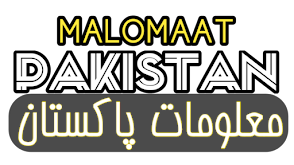Introduction
Education grants for adults in Canada offer a valuable opportunity to further their education and enhance their career prospects. These grants provide financial assistance to individuals who are seeking to improve their skills, knowledge, and qualifications. Whether you're looking to upskill for a new career, continue your education after a break, or simply expand your knowledge, there are various grants available to support your goals.
Table of Contents
- Understanding Education Grants
- Eligibility Criteria
- Types of Education Grants
- Popular Grant Programs
- Application Process
- Tips for a Successful Application
- FAQs
1. Understanding Education Grants
Education grants are financial aid provided by government agencies, educational institutions, or private organizations to help individuals cover the costs of their education. Unlike loans, grants do not need to be repaid. They are typically awarded based on factors such as academic merit, financial need, and specific program requirements.
2. Eligibility Criteria
The eligibility criteria for education grants can vary depending on the specific program. However, some common requirements may include:
- Canadian citizenship or permanent residency
- Age restrictions (often limited to adult learners)
- Financial need
- Academic performance
- Specific program requirements (e.g., field of study, enrollment status)
3. Types of Education Grants
There are several types of education grants available in Canada, each catering to different needs and circumstances:
- Government grants: These grants are funded by federal, provincial, or territorial governments and are often available to students pursuing full-time or part-time studies.
- Institutional grants: These grants are offered by educational institutions, such as colleges and universities, to support students' academic endeavors.
- Private grants: These grants are provided by private organizations, foundations, or corporations and may be available to students based on specific criteria, such as field of study or community involvement.
4. Popular Grant Programs
Here are some popular education grant programs in Canada:
- Canada Student Loans: While primarily known for student loans, Canada Student Loans also offers grants to eligible students.
- Provincial grants: Each province and territory has its own grant programs, which may vary in terms of eligibility criteria and funding amounts.
- Scholarships: Scholarships are typically awarded based on academic merit and can be used for various educational purposes, including tuition, books, and living expenses.
- Bursaries: Bursaries are often awarded based on financial need and can be used to help cover the costs of education.
5. Application Process
The application process for education grants can vary depending on the specific program. However, generally, it involves the following steps:
- Research: Identify potential grant programs that align with your educational goals and eligibility criteria.
- Gather information: Collect all necessary documents, such as transcripts, proof of income, and letters of recommendation.
- Complete the application: Fill out the application form accurately and provide all required information.
- Submit the application: Submit your application by the deadline, ensuring that all supporting documents are included.
- Follow up: If you haven't heard back within a reasonable timeframe, follow up with the grant provider to inquire about the status of your application.
6. Tips for a Successful Application
To increase your chances of receiving an education grant, consider the following tips:
- Start early: Begin your research and application process well in advance of the deadlines.
- Meet the eligibility criteria: Ensure that you meet all the requirements for the grants you are applying for.
- Prepare strong supporting documents: Gather high-quality transcripts, letters of recommendation, and any other required documents.
- Tailor your application: Customize your application to highlight your unique qualifications and how the grant will benefit you.
- Proofread carefully: Check your application for errors and ensure that it is well-written and professional.
FAQs
- Am I eligible for education grants if I'm already working full-time?
- Yes, many education grants are available to working adults who are looking to upskill or change careers.
- How can I find information about education grants in my province?
- You can visit the website of your provincial government's education department or contact local colleges and universities for information on available grants.
- Can I receive multiple grants at the same time?
- Yes, you may be eligible for multiple grants if you meet the criteria for each program.
- What happens if I don't repay a student loan?
- If you fail to repay a student loan, you may face consequences such as garnished wages or a damaged credit rating.
- Are there any grants available for online courses?
- Yes, some education grants are available for online courses, but the eligibility criteria may vary.
Conclusion
Education grants for adults in Canada offer a valuable opportunity to further their education and improve their career prospects. By understanding the different types of grants available, meeting the eligibility criteria, and following the application process, individuals can increase their chances of receiving financial assistance to support their academic goals.



.jpeg)




.png)

